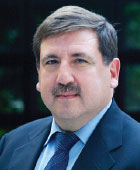Some Random Thoughts on ‘Gay Gene’ Studies
Abstract

A recent study in the journal Science claimed to “reveal insights into the genetic architecture of same-sex sexual behavior.” Following the study’s release, an above-the-fold, front-page headline in The New York Times declared, “Many genes influence same-sex sexuality, not a single ‘gay gene.’ ”
This is not entirely news. A 1991 study examined the likelihood of both twins being gay. The chance of two identical twins being gay was 52%; the frequency of fraternal twins being gay was only 22%. If homosexuality resulted from genetic transmission, one might expect 100% gay identical twins. Yet, 52% for identical twins compared with 22% for fraternal twins suggests genetics play some role, although not entirely, in the development of sexual orientation.
This new study notwithstanding, today, the relative contributions of nature and nurture remain unknown.
Heterosexuality as Default
Although theorizing origins of both same-sex relations and other-sex relations are found in Plato’s Symposium, the terms “homosexuality” and “heterosexuality” were first coined in 1869—in fact, by a journalist—a time when scientific speculation about same-sex feelings, behaviors, and attractions flourished. Then and now, heterosexuality’s origins were taken for granted, requiring no need for further study.
Sigmund Freud was an exception. Despite his own theorizing about “inversion’s” etiology, a 1914 footnote to Three Essays on the Theory of Sexuality noted that “from the point of view of psycho-analysis, the exclusive sexual interest felt by men for women is also a problem that needs elucidating and is not a self-evident fact based upon an attraction that is ultimately of a chemical nature.”
Freud’s caveat notwithstanding, researchers often, and implicitly, treat heterosexuality—needed to propagate the species—as a default position requiring no explanation. Consequently, headlines trumpeting genetic “causes” of heterosexuality are unlikely as no one is looking for them.
Patients Ask “Why Am I Gay?”
In clinical practice, gay patients sometimes ask therapists “why” they are gay.
What motivates the question? When one has a stigmatized identity—and gay identities are still stigmatized today—perhaps a therapist can provide an etiological narrative that makes sense to the patient. However, depending on the therapist’s training, beliefs, and biases, patients might conceptualize their homosexuality as good (“normal,” “born gay”), bad (“mental disorder,” “unforgivable sin”), or childish and immature (“infantile sexuality,” “developmental arrest”).
Occasionally, although less commonly than in the past, gay patients encounter therapists who introduce the issue of why the patient is gay. Of course, it would be highly unusual for a therapist to raise similar questions with straight patients. Heterosexual patients rarely ask therapists why they are straight, and one would be hard pressed to find many heterosexual patients willing to spend time and money on such a “treatment.”
Culture Wars
So why do “gay gene” studies make headlines? After APA removed “homosexuality per se” from DSM-II, mainstream mental health professionals moved away from pathologizing same-sex feelings and attractions. This eventually contributed to a cultural normalization of homosexuality.
However, speculation about homosexuality’s origins persists as a culture wars issue in a political battle over whether society should accept gay relationships on an equal basis with heterosexual ones.
On one side are those who believe people are “born gay” (often synonymous with genetically determined). In arguments against discrimination, the modern LGBTQ civil rights movement often speaks to this implicit belief. On the opposing side are religious, social conservatives who say no one is born gay. They believe that being gay is sinful or immoral and that those coming out as gay are making a wrong choice. These religious beliefs underlie refusal to normalize homosexuality as well as efforts to change homosexuality through sexual orientation conversion efforts (SOCE). Inevitably, differing interpretations of the new genetic study appeared quickly.
In The Advocate, Dean Hamer, author of a landmark 1993 “gay gene” study, remarked, “It’s easy to confuse ‘no single gay gene’ with ‘no genetic influence,’ which in short order will be misinterpreted as ‘it’s a choice.’ . . . [J]ust because our sexuality is complex and individualistic doesn’t mean that it isn’t deeply ingrained as part of our identity.”
In contrast, the Catholic News Agency quoted a theologian saying, “This is simply irrelevant to the analysis of the moral goodness or evil of homosexual acts, and of the ordered or disordered character of the homosexual tendency or disposition.”
In the culture wars, each side gleans from science what it will, making it unlikely that scientific findings alone will decide when society will treat gay people as full citizens. ■
References
Bailey, J. & Pillard, R. (1991). A genetic study of male sexual orientation. Archives General Psychiatry, 48:1089-1096.
Bailey, M.J., Vasey, P.L., Diamond, L.M., Breedlove, S.M., Vilain, E. & Epprecht, M. (2016). Sexual orientation, controversy and science. Psychological Science in the Public Interest, 17(2):45-101.
Belluck, P. (2019). Many genes influence same-sex sexuality, not a single ‘gay gene.’ The New York Times, August 30, p. A1. Accessed online on September 2 here.
Drescher, J. (2002). Causes and becauses: On etiological theories of homosexuality. The Annual of Psychoanalysis, 30:57-68.
Drescher, J. (2015). Out of DSM: Depathologizing homosexuality. Behavioral Sciences, 5:565-575.
Freud, S. (1905). Three essays on the theory of sexuality. Standard Edition, 7:123-246. London: Hogarth Press, 1953.
Ganna, A., Verweij, K.J.H., Nivard, M.G., Maier, R., Wedow, R., Busch, A.S., et al. (2019). Large-scale GWAS reveals insights into the genetic architecture of same-sex sexual behavior. Science, August 30, 365(6456).
Hamer, D., Hu, S., Magnuson, V., Hu, N. & Pattatucci, A. (1993). A linkage between DNA markers on the X-chromosome and male sexual orientation. Science, 261:321-327.



